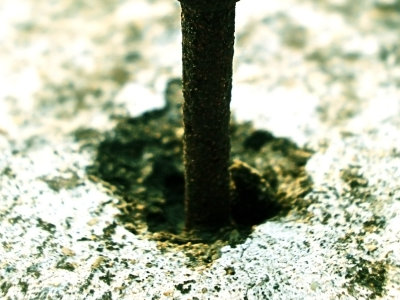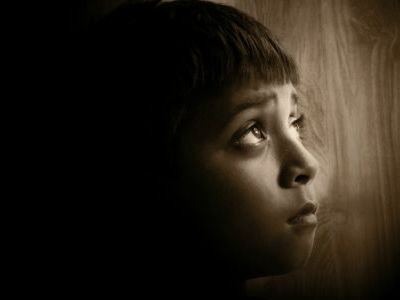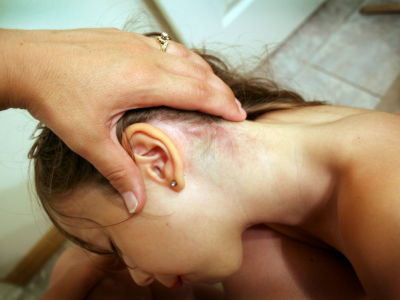Stories of people who survived being struck by lightning

In the United States alone, 500 people are struck by lightning each year, and about 90% of them survive, although some suffer severe sequelae. Outside, an outdoor-themed magazine, has compiled the testimonies of survivors of such lightning strikes and the stories of experts.
How to Survive a Lightning Strike - Outside Online
The first witness to survive the lightning strike was 48-year-old stockbroker Michael Utley on May 8, 2000. Mr. Atley was enjoying golf on this day, but when the people around him were surprised by the thunder and turned around, he could see Mr. Atley falling to the ground while being wrapped in smoke. Mr. Utley's shoes were blown away, his fingertips were charred, and his hair was shredded.
Mr. Atley responded to Outside's interview.
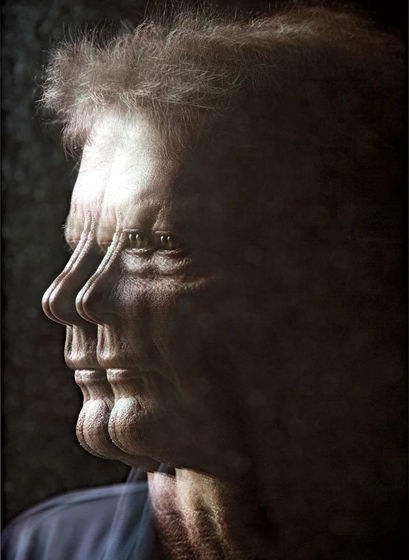
by Ethan Hill/REDUX Pictures
Mr. Atley's cardiopulmonary arrest, but a former Marine who was on the spot saved his life by calling emergency personnel while doing artificial respiration. Mr. Atley has no memory of that time, and what he remembers is that when he woke up, medical personnel told him, 'You were struck by lightning 38 days ago.'
Like Utley, most people who are struck by lightning don't remember what happened. In addition, even after the physical wounds have healed, they often experience psychological symptoms such as chronic pain, memory impairment, and personality changes.
Mr. Atley was able to leave the hospital five weeks after being brought to the hospital, but after that Mr. Atley spent months rehabilitating the practice of swallowing food, moving his fingers, and walking. I had to do
Mr. Atley, 62 years old at the time of writing the article, lives on disability insurance, and his career as a stockbroker has been interrupted by a lightning strike. He told Outside, 'I can't work anymore. My memory is burned out, I don't have the energy I used to have, I'm 30 years old in no time. I still walk and play golf. But I can't walk 100 yards without stopping and I fall all the time.'
Also, Mr. Atley's personality has changed greatly due to the lightning strike. ``Thunder has made me a mean and violent person.I am short-tempered now and I can't enjoy anything. Mr. Utley said. Thus, lightning became more than a lucky, close-knit event in Mr. Utley's life.
Complicating the matter of lightning strikes is that little is known medically about what happens to a person struck by lightning. In the field of physics, many scholars are devoted to the study of lightning as an electrical discharge phenomenon, but only a handful of doctors and researchers are devoted to researching the damage caused by lightning to the human body.
Some survivors experience temporary blindness and hearing loss. Deafness is caused by rupture of the eardrum due to an electric shock or lightning strike. Some people also report a metallic taste on their tongue, and in some cases they develop bruises that look like branched pine needles, called
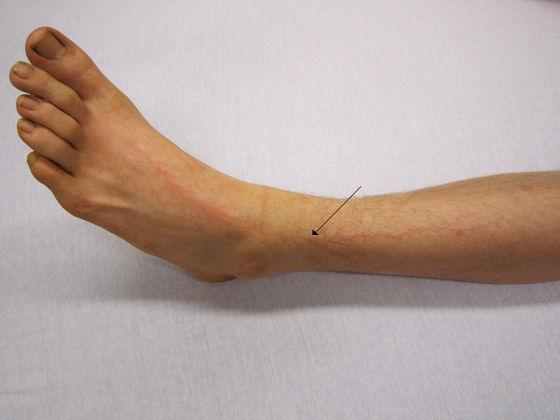
by
Another survivor of the lightning strike is Tamara Pandolph-Peary, then 46, who was struck by lightning in August 2010. After surviving a lightning strike, Pandolph-Peary forgot how to use simple tools like a potato peeler, and forgot the scenery of his native land. In addition to being plagued by migraine headaches and malaise, he suddenly becomes unable to write or understand what people are saying. In addition, they often get dizzy and lose their balance, and they may lose control over different parts of their body.
“At first, I wondered why me,” Pandolph-Peary said. If you get caught up in anger, it will ruin everything for the rest of your life.'
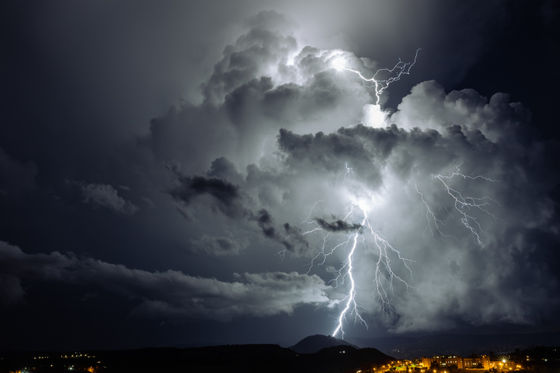
The average lightning strike energy is 500 megajoules, which is equivalent to the amount of heat that instantly evaporates 250 gallons (about 946 liters) of water. It also heats the air up to five times the temperature of the surface of the Sun as it passes through the atmosphere. Still, in the United States, an average of 51 people per year die from lightning strikes, more than 500 people are injured, and the survival rate is about 90%, which is surprisingly low considering the energy of lightning. For example, a person named
One of the reasons why the death rate from lightning strikes is not so high is that the characteristics of lightning strikes are very different from accidents such as electric shocks caused by familiar electrical appliances. If an unwary electrician grabs a live wire, the current can immobilize the body and cause electricity to flow through the body for an extended period of time, burning internal organs. On the other hand, lightning strikes have a powerful energy that is incomparable to the electricity flowing through the outlet plug, but it lasts only 1/500,000 second, so even if the skin is burned, the internal organs will not be damaged. There are many.
Trees struck by lightning can explode or catch fire. Nonetheless, when a person is struck by lightning, there is a risk of burning clothing due to electrical discharge from the body surface, and overheating metal objects such as belt buckles and keys. Occasionally, the victim's shoes or socks are blown off during the outbreak.
Mary Ann Cooper, professor emeritus at the University of Illinois at Chicago, is one of the few doctors to tackle the effects of lightning on the brain head-on. The impetus for this was when an acquaintance of mine was electrocuted by high voltage in the 1970s when I started aiming to become a doctor.
One of Cooper's research theme, a survivor suffering from the aftereffects of a lightning strike, is Phil Broskovak. While camping with his family and relatives in August 2005, Broskovak described the experience of being struck by lightning while rock climbing as 'a huge explosion of light, like a grenade exploding in my head.' The sound, the stinging pain of a thousand bees, the blue jelly-like plasma enveloping the body, the legs twitching on their own like puppets,” she recalled.
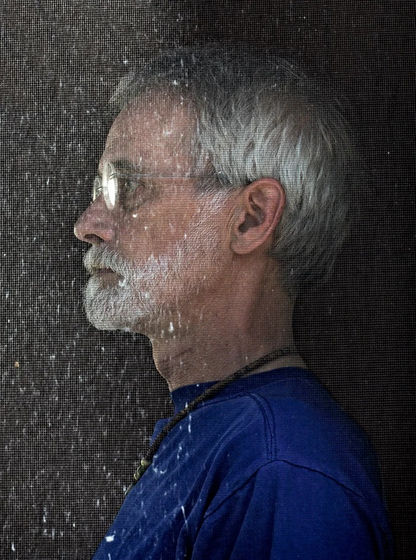
by Ethan Hill/REDUX Pictures
Luckily, Mr. Broskovak regained consciousness immediately after being suspended by the rope, so he did not think seriously at that time and did not listen to his wife's words that recommended him to go to the hospital, but when he woke up the next morning I was in so much pain that I could not stand up straight. But the biggest problem was not the physical pain, but the symptoms of forgetfulness.
After receiving a lightning strike, Mr. Broskowak said that he could not remember even simple things, tried to enter a word on the PC screen and typed another word, and could not understand what he had entered. About. It seems that it is more than once or twice that he broke down in tears because he could not remember the spelling of the word 'the'. I also suffered from tinnitus and insomnia, and became sensitive to everyday sounds. It is said that Mr. Broskovak also divorced his wife because the days of stepping on the teeth to such a state continued.
Mr. Broskovak continues his career as an electrician thanks to the stabilization of his symptoms, and continues his hobby of rock climbing. However, Mr. Broskovak's recovery is due to the passage of time, as he has not been able to take the aftereffects of lightning seriously and receive treatment even if he tells the doctor.
According to Cooper, who is studying survivors of such lightning strikes, it is becoming clear that most of the sequelae are caused by damage to the brain, nervous system, and muscles. Lightning can completely destroy cells, but it can also leave more subtle damage, and Cooper believes that disruption of these neural circuits is the cause of a variety of chronic problems.
Cooper's hypothesis is based on research using functional magnetic resonance imaging (fMRI) , which examines blood flow in the brain. In this study conducted by Mr. Cooper, it was found that there was a significant difference in brain activity when performing a mental test by scanning the brains of lightning victims and healthy people.
However, Mr. Cooper has not set the prospect of further research. This is because the medical and scientific community does not attach much importance to the study of lightning damage. Therefore, Mr. Cooper is focusing on educational activities to raise awareness of lightning damage and prevent accidents.
Not only researchers but also people who survived lightning strikes are doing activities based on their own experiences. In June 2001, a year after recovering from a lightning strike, Mr. Utley attended the first meeting of Lightning Strike & Electrical Shock Survivors , organized by lightning survivors, to launch the National Oceanic and Atmospheric Administration's Lightning Safety Awareness Week. cooperated with In addition, since 2002, he has been running Struckbylightning.org , a website aimed at educating people about how to prevent lightning damage, and has also started activities such as visiting schools and Boy Scout classes to give lectures.
'At first, it was maddening,' Utley said. 'When you realize you can't walk, you can't swallow food, you can't do anything. What the hell happened? Why me? Why is it only 15 feet?' I kept asking if it wasn't the other people standing a few meters away, but I'm sure there's no reason or meaning, it's like yelling at the sea and you never get an answer. hm,” he said.
Related Posts:
in Note, Posted by log1l_ks





